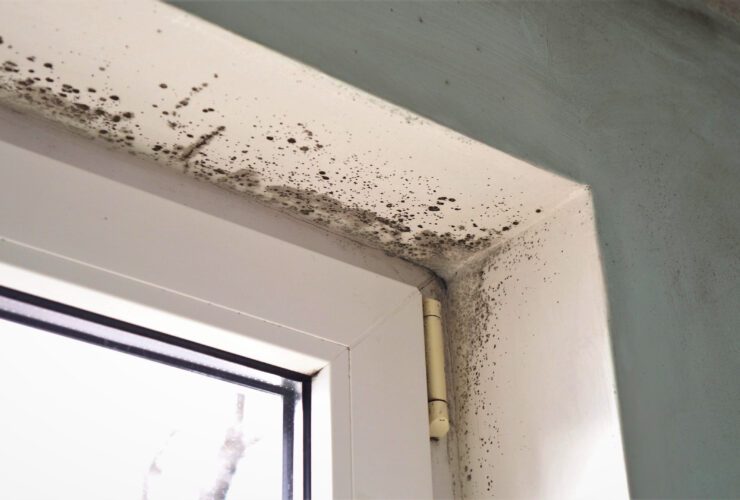
Awaab’s Law: Safeguarding Homes, Strengthening Accountability
What is Awaab’s Law and what do we need to know?
Awaab’s Law is part of the most significant government reforms affecting social housing in a decade. It is borne out of a tragic incident involving the death of two-year-old Awaab Ishak and is a pivotal legislative response to safety concerns in social housing. When in place, housing professionals will be charged with implementing the new safety regime. We therefore look at the Government’s recently published consultation, the rationale behind Awaab’s Law, the proposed responsibilities for social landlords, along with the government’s wider proposals to ensure every resident’s right to a decent, safe, and secure home.

What is the purpose of the reforms?
Awaab’s Law has been designed to prevent housing-related tragedies, specifically sparked by the tragic death of Awaab Ishak from respiratory problems caused by prolonged exposure to damp and mould. The legislation reflects a commitment by government to address disrepair and safety concerns in social housing and sets the stage for a robust regulatory framework that transcends damp and mould concerns to encompass a broader spectrum of health and safety hazards, including emergency repairs.
Why is the Consultation Taking Place?
Fulfilling the Promise:
The consultation seeks to refine Awaab’s Law, ensuring it will be fit for purpose. It seeks views on the specific requirements to be set and how these obligations will impact on residents and landlords. It presents an opportunity to say what we agree with, to give valuable insights, and to and to raise any questions or concerns we might have about delivering the legislation in practice.
The consultation seeks responses via an online survey, which can be accessed here. Other methods of response are available, detailed in the ‘How to Respond’ section of the article.
What is the scope of the reforms?
While initiated in response to a tragedy involving damp and mould, Awaab’s Law goes beyond this, legislating for response times and approaches across all housing health and safety hazards. Hazards in scope of Awaab’s Law will be those that pose a significant risk to the health or safety of the actual resident of the dwelling. This means that a hazard does not have to be at category 1 level to be in scope. This is because there may be instances where a particular resident is at a greater risk from hazardous conditions.
The main provisions are as follows:
- Landlords will need to use their judgement and suitable repair reporting processes for triaging repairs. Once made aware of a potential hazard in a social home, the landlord must investigate within 14 calendar days to ascertain if there is a hazard.For emergency repairs, landlords will be required by law to action these as soon as practicable and, in any event, within 24 hours.
- Within 14 calendar days of being made aware that there is a potential hazard in a social home, the landlord must provide a written summary of findings to the resident that includes details of any hazard identified and (if applicable) next steps, including an anticipated timeline for repair and a schedule of works. It does not say in the consultation how this requirement applies where emergency repairs have been attended to and completed.
- If the investigation indicates that a reported hazard poses a significant risk to the health or safety of the resident, repair works must begin within 7 calendar days of the written summary being issued. They must be satisfactorily completed within a reasonable time period, with the resident informed of this time period and their needs should be considered.
Impact on Social Housing Landlords
Assessment of Capabilities:
Social landlord organisations are faced with a significant shift in responsibilities. Compliance with Awaab’s Law will demand a thorough assessment of capabilities, considering resources, expertise, and budget to improve or replace existing processes or introduce entirely new ones. Sound judgements will be essential by all staff, from those in the call centre, to schedulers, to those inspecting and assessing potential hazards in homes and their potential to cause risk to residents based on the individual resident’s situation. Emergency repair arrangements must be capable of completing all emergency repairs within 24 hours. Clear, consistent and thoroughly reliable communication with residents will be needed. Record keeping will need to be meticulous.
Consequences of Non-Compliance with Awaab’s Law:
Non-compliance with Awaab’s Law will carry significant legal consequences. Landlords failing to meet their obligations risk legal action by residents, potential compensation claims, and court orders mandating repairs. Awaab’s Law leaves no room for anything other than precision and excellence in dealing with repairs and maintenance. The risks involved in non-compliance will mean landlords will need to undertake a root and branch review of their entire systems and processes.
Conclusion:
Awaab’s Law heralds a new era of social landlord accountability, emphasising the integral connection between housing conditions and resident well-being. Through the consultation, stakeholders, guided by the government’s proposals, must collectively contribute to shaping legislation that not only addresses past tragedies but successfully creates a safer, more secure future for all. ARK stands as a steadfast partner, equipping social housing organisations with the tools and expertise needed to navigate and exceed compliance expectations.

News & Insights
Read the latest housing sector news, blogs, and commentary from ARK.

Building Safety
By Luke Beard ·The deadline for registering an existing higher risk building (HRB) with the regulator and submitting the required key building information …

Are you ready for the Supported Housing (Regulatory Oversight) Act 2023?
By Nick Sedgwick ·If you are a supported housing provider, you need to be aware of the new regulations that are about to …

International Women’s Day 2024
By Chris Seeley ·The theme of International Women’s Day 2024 is the question ‘What does it mean to truly inspire inclusion?’, we asked our …
Subscribe to our newsletters for the latest industry insights
Our newsletters and reports will keep you updated on topical issues from the sector as well as what’s happening at ARK.
